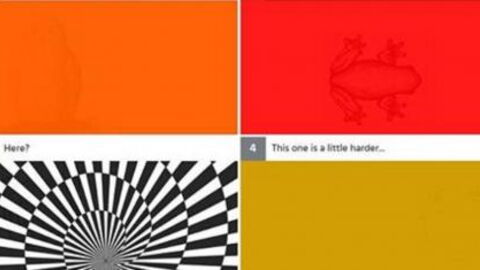They can sometimes give us a headache when for others the solution is quite obvious. We don't always understand why those around us can't see what we see, and that's the whole point: it's an optical illusion.
Discover our latest podcast
From a diagram, drawing, or shape, we think we know what we see and our brain tells us what that is, but for others it's different. Can you find all the shapes?
Donkey, mermaid, fish…
On a bluish-pink background is a drawing. For some, it is undoubtedly a donkey, given the shape of the supposed eyes and the elongated snout. Others, more inclined to marine myths or Disney animated films, will definitely see a mermaid.
🤔 What do you see in this optical illusion? Let us know in the comments below... pic.twitter.com/a6n2XPBSkg
— NationalWorld (@NationalWorld) March 21, 2022
Ariel? We're not sure, but the tail of the famous half-fish, half-woman at the top of the image gives them reason. A third category would see a seal, and if we look closely, it is true that this small sea animal seems to be present with its head stuck to the ground. Then, there are those who see in this image a classic fish. No cuteness or fantasy for them, but a slight pragmatism.
Right brain, left brain?
The image that confuses many is accompanied by a text:
If you're right-brained, you'll see a fish. If you're left-brained, you'll see a mermaid
But what is it about? Our colleagues at National World have explained this phenomenon in part, which is based on the dominance of one part of the brain over the other.
Read more:
⋙ Optical illusion: What you see depends on the time of year
⋙ Optical illusion: The animal you spot in this picture says a lot about you
⋙ Blue: This colour may actually be an optical illusion
You know, that theory from the 1960s which states that if you are right-handed, your left side of the brain is activated, and vice versa. Here, it's almost the same. The left side would be the one for analysis, order, and better reading ability, while the right side would be more focused on creative and intuitive abilities.
Generally speaking, it is claimed that the right side of the brain has more artistic connotations, while the left is more pragmatic. But this theory from the 1960s by Sperry tends to be more and more contested. A more extensive study carried out on PLOS One in 2013 is more complete on the subject, do not hesitate to go and have a look at it.















